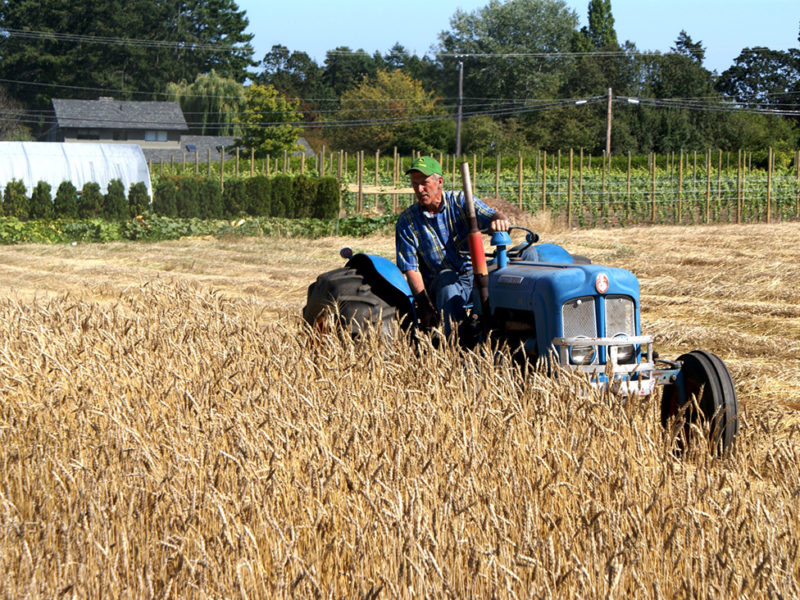NORTH SAANICH – A farmer in North Saanich is questioning how the province charges farmers for groundwater after registering his well and being billed for drawing water – even though his farm is on municipal water.
Hamish Crawford grows wheat, grapes and a small amount berries and eggs on his 10-acre farm north of Victoria. The grapes are used by the family’s estate winery while the other produce supports an on-farm bakery and bistro. Collectively known as the Roost Farm Centre, it claims to be the province’s only on-farm bakery.
Crawford’s daughter Sarah and her husband Dallas Boll run the Roost. Crawford focuses on the farming side. When he and other local producers saw that the province was moving ahead with a new system for managing groundwater, he wanted to do the right thing. The fact the government was waiving the fee for registering existing wells and applying for a licence to use groundwater was an incentive.
“I made an application for a license to use well water last year as the information I had indicated that the registration fee would be waived if I applied sooner than later,” he says.
Like many other growers, Crawford found the application process difficult so FrontCounter BC, which is coordinating the initiative, put him in touch with someone who walked him through it. The well was registered, and Crawford thought nothing more of it. His primary source of water is the system run by the local municipality.
The well is one of an estimated 20,000 in BC that the province has been trying to register since the new Water Sustainability Act took effect in 2016. The new act introduced a first-in-time, first-in-right system designed to help manage groundwater. Registered wells maintain their historical priority in the event of groundwater restrictions. Well owners who don’t register by March 1, 2022 must pay an application fee and lose their priority in the new regime.
But rights need to be exercised, and in early March the province sent Crawford a bill for $191.94. The fee reflected groundwater used since February 29, 2016, when the new regime came into place. Since the well existed, according to the province, Crawford must be using it.
Groundwater used for non-domestic purposes is subject to a minimum annual fee of $50. The rate reflects a rate of $0.85 per 1,000 cubic metres. Well owners who have registered their wells and use less than $60 of water a year – not uncommon for small farms like Crawford’s – receive a bill once every three years. By the end of March, the province estimated it had collected fees totalling nearly $2 million from 920 groundwater licences. The majority, $1.7 million, is for water drawn from existing wells.
Crawford, who already pays North Saanich for the water it delivers to his farm, was shocked.
“We are hooked up to the municipal water system and get the agricultural rate, so I do not require well water,” he says.
When he complained to FrontCounter BC, he was given the option to withdraw his application, which he promptly did. He plans to have the well capped to avoid being charged for the water he hasn’t been using.
According to the BC Ministry of Forests, Lands, Natural Resource Operations and Rural Development, 56 other applications have been either abandoned or withdrawn. This is about 1% of the 5,000 applications received for groundwater licences.
Just how many of those wells are providing water alongside municipal systems is unknown.
Crawford, for his part, feels the province needs to do a better job of explaining the new system to growers.
I don’t think it’s been explained very well,” he says. “I suspect there’s a lot of farmers out there that have just been in denial or not looking at it, and all of a sudden they’re going to get this bill and ask what’s going on.”


 Dairy producers surveyed on regulation impact
Dairy producers surveyed on regulation impact